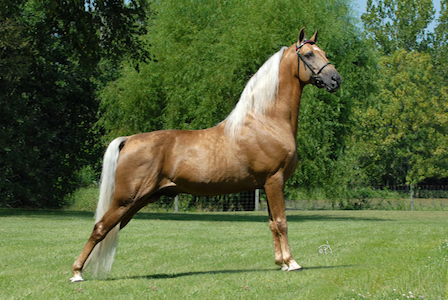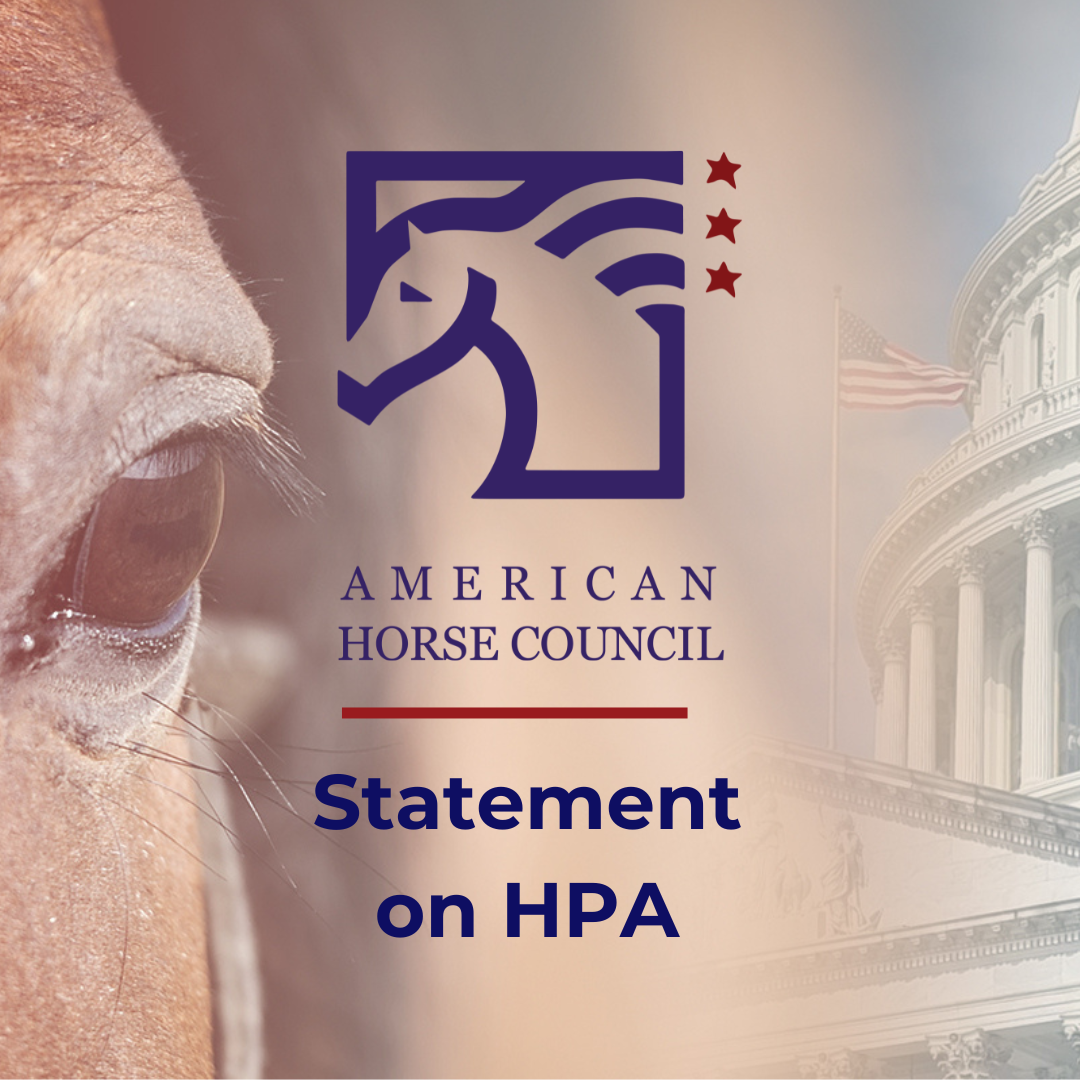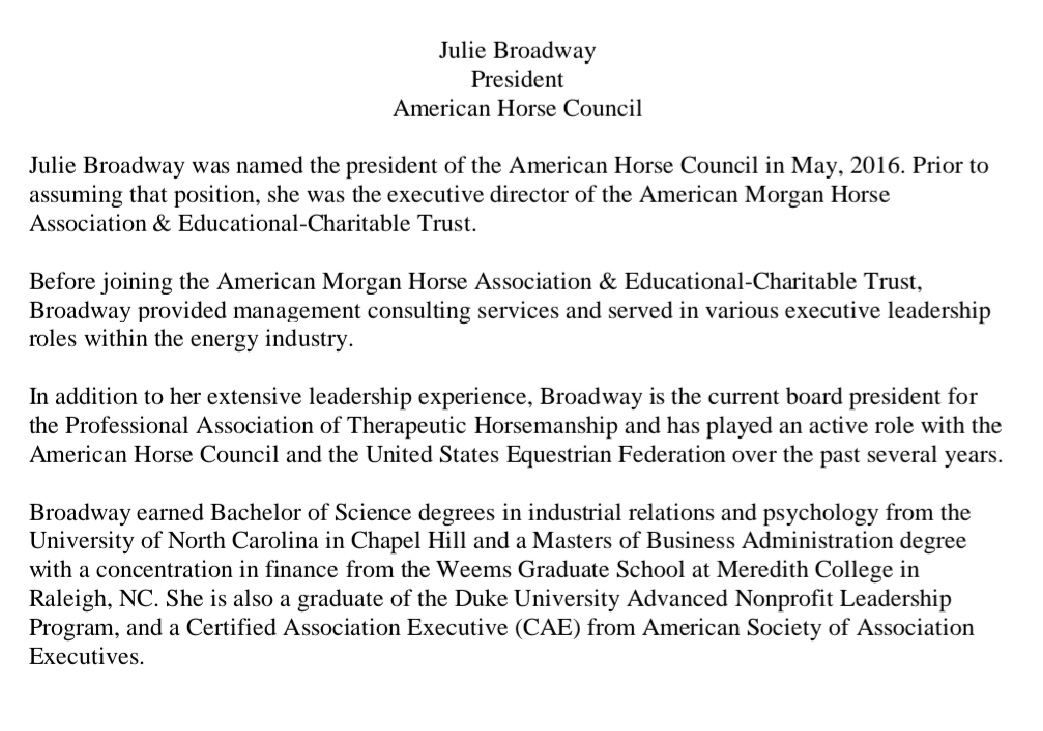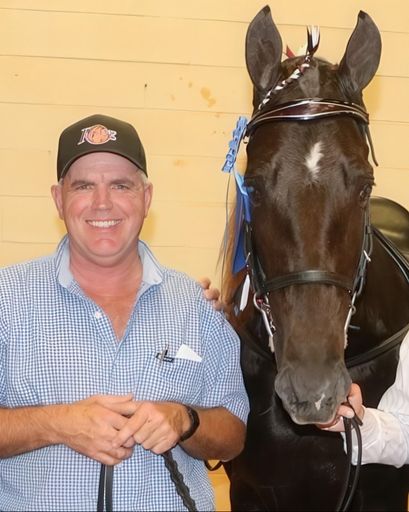An update to end 2024
Thursday, December 19, 2024
by Jeffrey Howard
I would like to wish everyone a Merry Christmas and wonderful holiday season. It is a perfect time to spend with our families, friends and loved ones when we can relax and break from the pressures and anxieties that are a part of our daily lives.
The Tennessee Walking Horse industry experienced an interesting 2024, to say the least, but 2025 promises to be even more interesting. There are attempts by USDA to change the rules and amend the HPA regulations, and industry lawsuits challenging the validity and constitutionality of those changes.
What I expect 2025 to be is the year that our industry puts its best foot forward and finally reaches some of the clarity this industry has so desperately sought for over 20 years. Our horse deserves it first, but secondly, our owners, exhibitors and trainers deserve to be able to show their horses they so emphatically love.
But before we get to 2025, I wanted to update you on several outstanding matters facing the industry. This is by no means an exhaustive list, and the detail can be found in previous stories and filings by attorneys on both sides.
Rulemaking Challenge in Texas
The lawsuit filed by The Celebration and owners Kim Lewis and Tom Gould is on track for a decision from the judge prior to the February 1, 2025 effective date. The Walking Horse Trainers’ Association and Tennessee Walking Horse Breeders’ & Exhibitors’ Association are not named plaintiffs, but have been a part of the process from the very beginning and are in 100% support of the arguments made in the industry’s lawsuit.
The court has not ruled on the change of venue sought by USDA, nor the HSUS motion to intervene. Given the timing of the overall briefing schedule, the expectation is the case will stay in Amarillo and the HSUS will not be allowed to intervene.
The industry has filed its final reply brief in the case. That was filed December 9, 2024. The USDA has their final reply brief to file by December 20, 2024. The industry’s attorneys have asked for oral arguments in January, but the expectation is the judge will rule prior to February 1st whether those oral arguments are granted or not.
A final reminder, no injunction was sought due to the agreed upon briefing schedule by industry and USDA attorneys that allows for a final ruling prior to February 1, 2025. If the industry prevails in the lawsuit and is successful in all its challenges, the rule will not go into effect and the same rules that governed the 2024 season would be in effect for 2025.
Wright Challenge in Tennessee
The lawsuit brought by Michael, Casey and Josh Wright in Jackson, Tennessee, was a challenge to the current enforcement of the HPA in regards to the scar rule and post-show inflammation. The lawsuit also seeks relief from the lack of due process to owners, trainers and exhibitors under the current enforcement scheme.
The USDA filed a motion to dismiss in the case and that led to an amended complaint by the Wright’s, but at this time the motion to dismiss is fully briefed and we are awaiting a decision by the judge. The USDA’s motion to dismiss was not to dismiss the entire case, but rather that the relief be provided only to the Wright’s and not the entire industry. The lawyers representing the Wright’s, Torridon Law, who also is handling the rulemaking challenge, disagreed with the position of the USDA and opposed in its briefings.
A timeline for a final decision in the case is hard to predict, but assuming a decision on the motion to dismiss comes in January, the most likely conclusion timeline for the case would be mid-summer. We will all be hearing a lot more about this case in 2025 and once the rulemaking challenge is behind us.
House Oversight subpoena of Dr. Aaron Rhyner
House Oversight Chairman Rep. James Comer (R-KY) issued a subpoena for Dr. Aaron Rhyner with APHIS to appear for a transcribed interview under oath on December 9, 2024. The USDA did not want to make Dr. Rhyner available for this transcribed interview and was willing to fight the subpoena. The committee agreed with the USDA’s request to make Dr. Rhyner available for a briefing on December 14, 2024. This briefing and change in plans does not revoke the subpoena and the committee will consider all the information gained in the briefing and follow up information received when deciding if and when to bring Dr. Rhyner in under the subpoena.
The briefing centered around the email sent by Dr. Rhyner during this year’s Trainers’ Show changing the policies of USDA, specifically the application of the scar rule. Even though attorneys from the Department of Justice representing the USDA have claimed the email was not a change in policy, Dr. Rhyner did agree the change in scar rule application was a policy change for USDA during the briefing.
Another clarification gained from the briefing is that all previous policies, procedures, guidance, etc., sent by USDA are no longer applicable. That would include the 2010 points of emphasis which changed the USDA policy that a horse disqualified in one class was disqualified for the remainder of the show, among other changes.
Fundraising
This is the topic we all hate to discuss, but it is extremely important. The industry has done a fantastic job raising money, and basically everyone has contributed something. There was the $200,000 from FAST left in the legal fund from previous fundraising, to $100,000 donated from each of the Celebration, WHTA and TWHBEA. Private donations have come in excess of $750,000 and have included multiple six-figure donations by industry supporters. The horse and exhibitor cards, both at $100, have raised over $350,000 and will be in place again in 2025.
The industry must continue to raise money, and I urge each of you to consider donating what you can and remember no donation is too small (or large!). This is a fight to save our show horse and to protect the rights you have as owners, trainers and exhibitors that each of you have experienced at one time or another have been trampled.
Please feel free to reach out to board members of Celebration, FAST, WHTA or TWHBEA to learn of all the ways you can help.
OIG Investigation of APHIS
After this year’s Celebration and at the request of House Oversight and House Agriculture committees, USDA’s Office of Inspector General opened an investigation into the actions of APHIS and the potential retaliatory actions of VMOs in the field and the previous mentioned email by Dr. Rhyner during the middle of a horse show changing the rules. The results of this are unknown at this time and it could be upwards of a year before we see a report, but it is not insignificant that the Inspector General is investigation the department.
I hope the above helps with just providing some clarity as we end the year and look forward to what promises to be an industry-altering 2025. Please rest assured that the major organizations in the industry are aligned, working together and seeking the same results. I participate in meetings with representatives from all of the organizations and the mutual respect and goals for our horse are encouraging.
I leave you with this, there have been some dark days and times of tremendous frustration over my last 20 years. There have been times that I felt hopeless and wondered what the future held. At this year’s Celebration, the actions of the USDA were at a level that I had not witnessed before. The USDA has literally taken a position that riding our horse is soring it if anything happens to the horse in the ring. Just stop and let that sink in.
Although I can’t guarantee we win, or that the judges rule in our favor, I can tell you our position is strong. And I speak for only me when I tell you that I am as optimistic as I have ever been about the future of our show horse and our industry.
Happy New Year and I wish nothing but the best for all of you, your families and your horses!
 During his two-year-old season, Trip My Trigger began to show his promise, competing in both open and amateur divisions and collecting five blue ribbons. It wasn’t long before he caught the eye of Jo Ann Dowell, who purchased him for her daughter, Sue Ann Dowell. Together with Sue Ann, Trip My Trigger embarked on a journey that would solidify his place in history.
During his two-year-old season, Trip My Trigger began to show his promise, competing in both open and amateur divisions and collecting five blue ribbons. It wasn’t long before he caught the eye of Jo Ann Dowell, who purchased him for her daughter, Sue Ann Dowell. Together with Sue Ann, Trip My Trigger embarked on a journey that would solidify his place in history.

